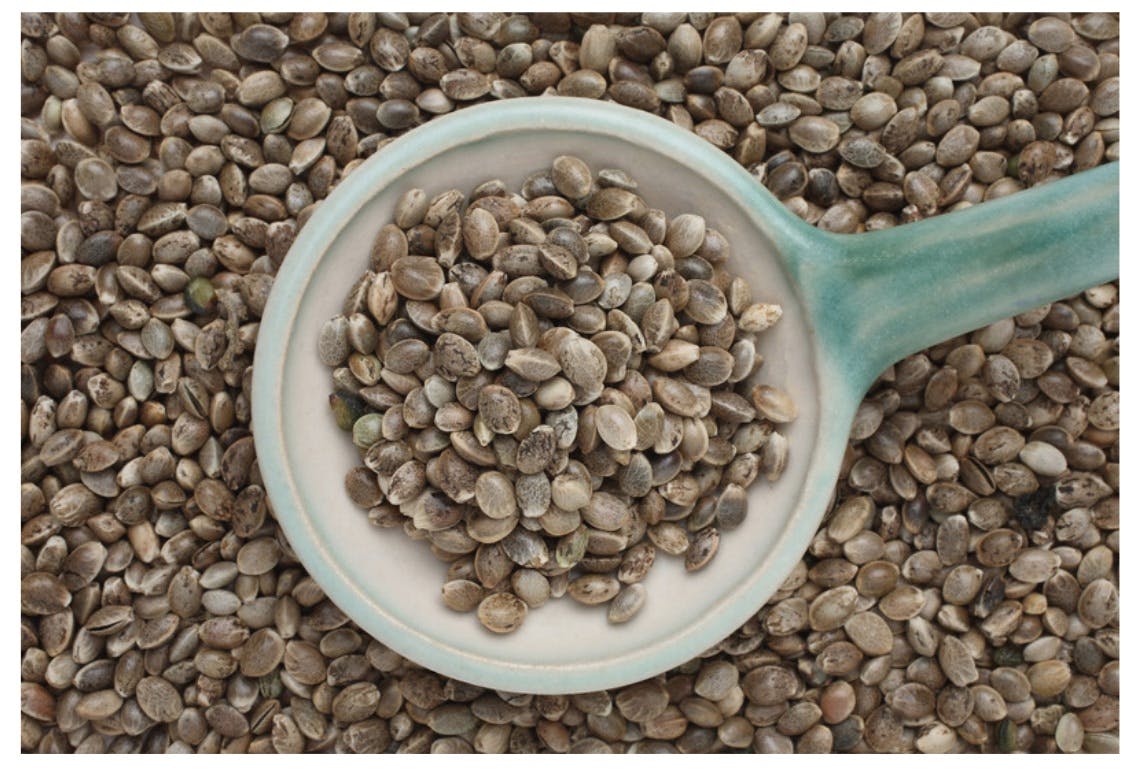
Pour Some Hemp Seeds On Me
By Danielle McAvoy
April 9, 2019
Hemp, though it’s been around for a while, is trending due to the exploding popularity of CBD, the hemp product taking over the food and wellness industry. While CBD is promising for a variety of health benefits, the research is still ongoing. In contrast, hemp seeds have been used for food and medicine for hundreds of years. Hemp seeds have an incredible nutritional profile and many known health benefits.
Hemp seeds are from the hemp plant You may also see them called hemp hearts and they’re technically a nut. Like CBD, which is also hemp-derived, the seeds also don’t have the psychoactive compounds found in marijuana. The seeds themselves don’t contain CBD, since the compound comes from the flowers, leaves and stalks of the plant.
Hemp seeds are unique little nutrient powerhouses due to their rare macro nutrient make up. They’re an extraordinary source of omega-6 and omega-3 fats and have an optimal ratio of them. Hemp seeds are also a complete protein, containing all of the essential amino acids, and its unusual carbohydrate makeup makes it easily digestible.
The Fats
The 3:1 ratio of omega-6 to omega-3 fatty acids in hemp seeds is rare – these omegas are the healthiest of all fats and 3:1 is the most optimal ratio. This makes them extremely heart healthy. Hemp seeds have been shown to improve cholesterol ratios by increasing HDL and decreasing LDL. They can also help reduce blood clots and decrease arterial plaque and inflammation. These functions play a huge role in preventing and treating heart disease, hypertension, and inflammatory diseases like osteoarthritis. Because skin health also depends on good fats, hemp seeds can help treat skin conditions like atopic dermatitis and eczema.
The Protein
Hemp seeds are about 25% protein, which is relatively high for a plant, and as noted above, are a complete protein because they contain all of the essential amino acids. Complete plant proteins are rare, so hemp seeds can be a valuable protein source for vegetarians and vegans. Hemp seeds are second only to soybeans in plant protein content, containing over 9 grams in 3 tbsp. Hemp protein is also easy to digest because it doesn’t contain any oligosaccharides, the complex carbohydrates that make beans hard to digest.
Hemp seeds are mostly fat and protein, which means they’re naturally low in carbs. Compared to flax and chia, hemp has twice as much protein and about 1/3 the amount of carbs.
Eating Them
Hemp seeds have a delicious, nutty flavor and crunch that pairs well with many savory and sweet foods. They can be eaten raw or cooked, and ground into flour or protein powder. Here are some ideas for how to use them:
Sprinkle On:
- Salads
- Yogurt
- Avocado toast
- Eggs
- Oatmeal
- Veggie sides, like this Shaved Brussels Sprouts Salad w/ Creamy Apple Cider Vinaigrette
Bake Into:
- Muffins, like these Blueberry Crumble Hemp Muffins
- Bars
- Breads
- Cookies
Blend Into:
- Smoothies
- Soup, like this Carrot Soup
- Sauces
- Salad dressings
Hemp is a perfect way to add protein to a snack, baked good, or smoothie to help you feel full for longer. And keep your eyes peeled for some Territory meals and snacks to get a nutritional boost with hemp seeds later this year!
Popular Posts
Foods to Avoid When Taking GLP-1 Weight Loss Medications
April 25, 2025
Tips for GLP-1 Success: Healthy Habits to Practice on Weight Loss Medication
March 6, 2025
How to Go Gluten-Free: A Beginners Guide to Starting a Gluten-Free Diet
November 21, 2024
A Guide to Snacking on a Gluten-Free Diet
November 12, 2024